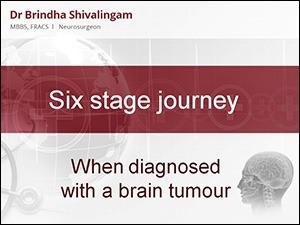Preparing for surgery
Neurosurgery is major surgery and is stressful to the body and mind. To optimize your recovery it is important to have a positive attitude and be as physically fit as possible. Factors that hinder healing are :
- Smoking
- Obesity
- Excessive alcohol
- Poor nutrition
In the time leading up to an operation it is advisable to :
- Stop smoking
- Maintain a healthy, nutritious diet
- Get adequate rest
There are certain medications that also need consideration prior to surgery
Blood Thinning medication
- Warfarin
- Pradaxa, Xarelto, Rivaroxaban
- Clexane
These are prescribed to people who have certain heart conditions or those who have had problems with blood clots in the past. It prevents blood from clotting.
Neurosurgery cannot be performed on people who are on these drugs, as it significantly increases the risk of uncontrolled bleeding during and after surgery.
They must be stopped prior to surgery. If you are on one of these drugs and are due to have a surgical procedure, it is absolutely crucial that you inform your Neurosurgeon of this.
- Aspirin/Clopidogrel/NSAIDS
These drugs have many trade names. Following are a list of the common ones.
Aspirin : Cartia, Dispirin, Solprin
Asassantin
Clopidogrel : Plavix, Iscover
These drugs stop the functioning of platelets which are found normally in our blood and are essential in stopping bleeding.
For most Neurosurgical procedures, it is advisable to cease these medications 7-10 days prior to surgery.
Again it is crucial that you inform your Neurosurgeon if you are taking any of these.
Hair Care
For brain operations, Dr Shivalingam only shaves a minimal amount of hair. There is no special preparation required pre operatively. However, it is advisable to shampoo your hair the day prior to surgery and avoid any hair products such as gels and sprays.
Pre op procedure
During your consultation with Dr Shivalingam, she may advise that you require surgery. The procedure and the significant complications associated with that procedure will be outlined for you. Once you have decided to proceed with surgery, you will need to sign the consent form.
A date will then be allocated for your surgery. This date depends on a number of factors. These factors are :
- Urgency of the condition
- Financial classification
Private
Public - Hospital
- The need for special equipment
- Your convenience
Once the date has been allocated, you will receive a letter confirming this date and outlining the next step.
The next step is to be seen in a Preadmission clinic. This clinic is run by an anaesthetist.
At the preadmission clinic you will :
- meet the anaesthetist and the other significant people who are essential for your care in hospital.
- have a set of tests to ensure that you are medically fit for the operation.
For most brain operations and some spine operations, you will also need another CT or MRI for the purpose ofthe computer navigation system used for your operation. You will be notified of the time and date for this scan.
If your operation is to be in the highly specialized iMRI theatre at Royal Prince Alfred Hospital, you will not need a scan beforehand.
Pre operative Medications
Brain Tumours Surgery
You will be prescribed Dexamethasone and a stomach protectant to be commenced the night before surgery.
Dexamethasone is a steroid agent which reduces swelling within the brain. It is essential to control swelling in the brain during and after an operation to prevent long term brain damage. However, dexamethasone may produce one or more of these short term side effects.
- Hyperactivity
- Restlessness
- Agitation
- Confusion
- Hallucinations
- Sleeplessness
- Increased apetite
- Increased sugar level in the blood (especially for diabetics)
At the preadmission clinic you will be advised about fasting prior to surgery. It is absolutely crucial that these rules are strictly followed. If any food or drink has been consumed in that time frame, your operation may be cancelled.
When you present to hospital for your operation it is also crucial that you bring all your scans. Again surgery may be cancelled if the appropriate scans are not available.
Above is a brief overview of what to expect leading up to an operation. It is an extremely difficult and worrying time and you will need emotional support and reassurance.
"If you have any further questions or concerns, please do not hesitate to contact the office. It is my practice and priority to be there for you at this time.
Brindha"


















